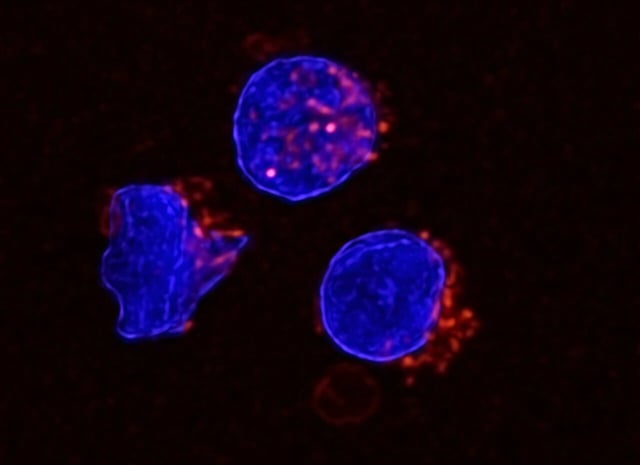Overview
- Over 70% of ovarian cancer cases are diagnosed at advanced stages, often accompanied by ascitic fluid accumulation that worsens prognosis.
- Research from Trinity College Dublin and University College Dublin highlights phospholipids in ascitic fluid as key drivers of immune dysfunction.
- Phospholipids disrupt NK cell metabolism, suppressing their ability to kill cancer cells and contributing to tumor progression.
- Blocking the SR-B1 receptor, which mediates phospholipid uptake, restores NK cell anti-tumor activity in vitro, suggesting a new immunotherapy target.
- The findings, published in *Science Immunology*, lay the groundwork for therapies aimed at reversing lipid-induced immune suppression in ovarian cancer.
